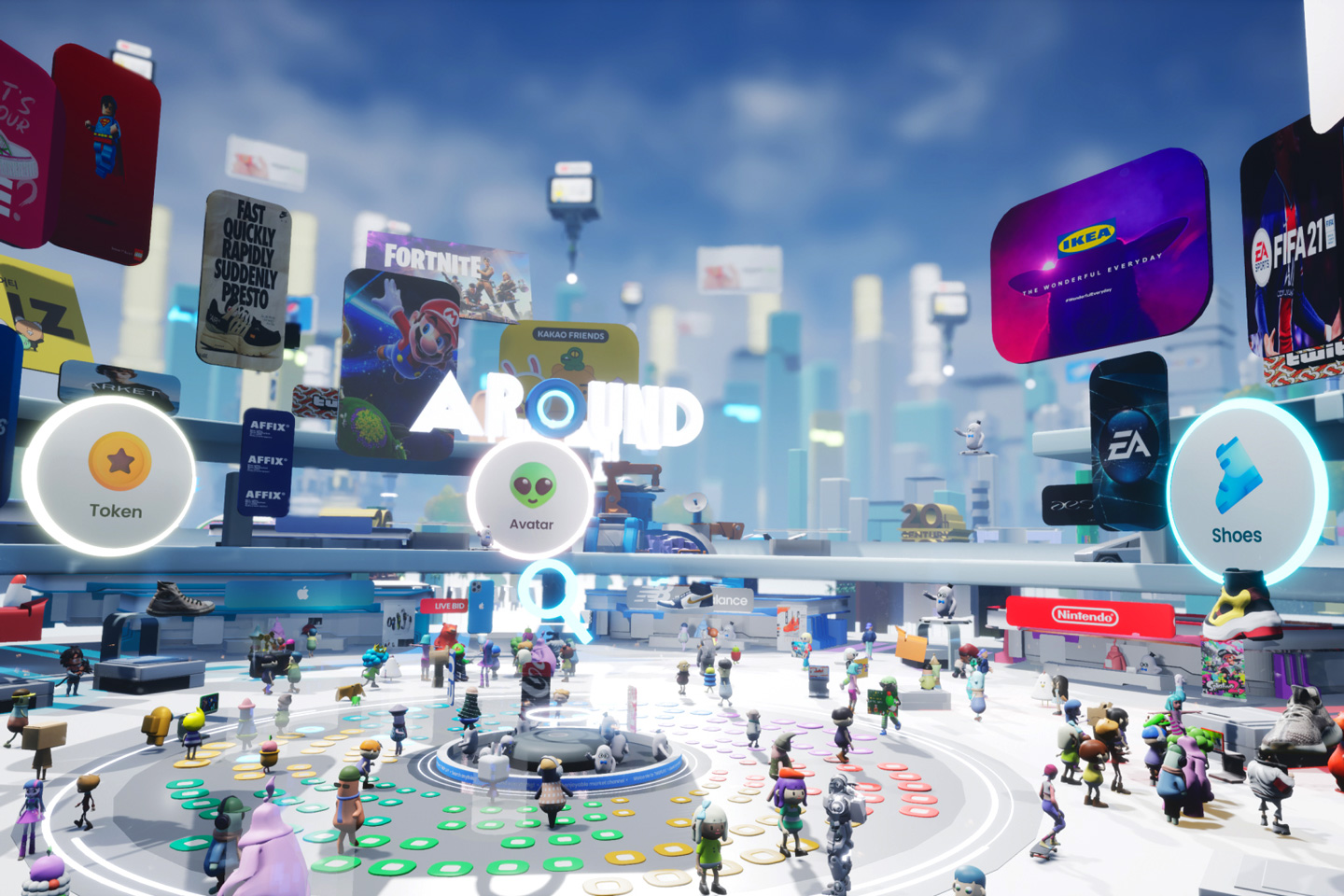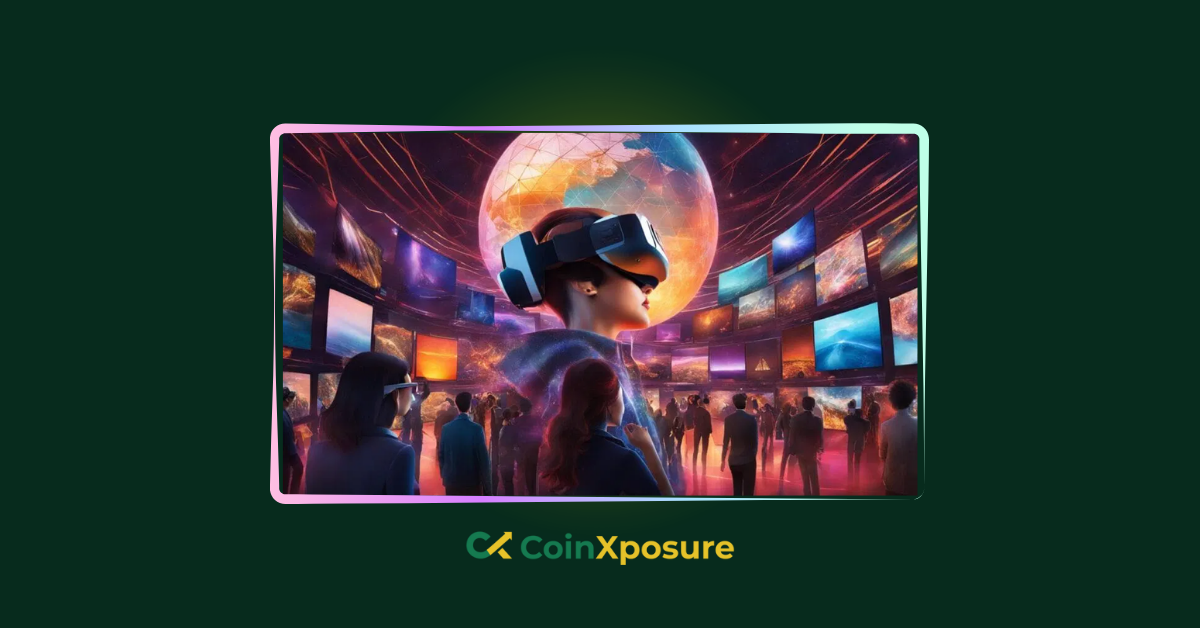This article will explore the definition of the Metaverse Marketplace, its benefits and challenges, current and future applications, and its implications for the future of digital commerce.
By understanding the potential of the Metaverse Marketplace, businesses can prepare themselves for a new era of digital commerce and stay ahead of the curve in the rapidly evolving world of technology and innovation.
The Metaverse Marketplace represents the next frontier in digital commerce, offering new opportunities for businesses to engage with customers and create immersive experiences.
The Metaverse is a virtual space where users can interact with each other and digital assets in a three-dimensional environment, while the Marketplace provides a platform for buying and selling virtual goods and services.
With the rise of virtual reality technology and the increasing integration of the virtual and physical worlds, the Metaverse Marketplace is poised to revolutionize the way we conduct commerce online.
Importance of the Metaverse Marketplace in Digital Commerce
The Metaverse Marketplace has the potential to revolutionize digital commerce by providing a new platform for businesses to engage with customers and offering immersive experiences.
It represents the next stage in the evolution of digital commerce, combining virtual reality technology with e-commerce to create a three-dimensional environment where users can interact with digital assets and each other.
One of the key benefits of the Metaverse Marketplace is that it enhances the customer experience by providing a more interactive and personalized shopping experience.
Customers can explore virtual stores and interact with products in a way that is not possible with traditional e-commerce platforms. This can lead to increased engagement and customer loyalty.
Another important aspect of the Metaverse Marketplace is that it offers increased accessibility and convenience. Users can access the Metaverse from anywhere in the world, at any time, and on any device. This makes it easier for businesses to reach customers and for customers to access products and services.
The Metaverse Marketplace also creates new revenue streams for businesses. By selling virtual goods and services, businesses can expand their offerings beyond physical products and reach a wider audience.
Additionally, the Metaverse Marketplace provides opportunities for businesses to collaborate with other businesses and create new partnerships.
Finally, the Metaverse Marketplace integrates the virtual and physical worlds, creating new possibilities for marketing and advertising. Businesses can use the Metaverse to showcase products and services in a more immersive and engaging way and to create unique experiences that differentiate them from their competitors.
The Metaverse Marketplace represents a significant opportunity for businesses to stay ahead of the curve in the rapidly evolving world of digital commerce. By embracing this new platform, businesses can enhance the customer experience, increase revenue, and create new partnerships and opportunities for growth.
What is the Metaverse Marketplace?
The Metaverse Marketplace is a virtual space where users can buy and sell digital assets and services within a three-dimensional environment called the Metaverse. The Metaverse is a shared virtual world that is created by the convergence of virtual reality, augmented reality, and other emerging technologies.
It is an immersive environment where users can interact with each other and digital assets in a way that is not possible with traditional e-commerce platforms.
The Metaverse Marketplace provides a platform for businesses and individuals to create and sell virtual goods and services such as virtual fashion, virtual real estate, digital art, and more. Users can explore virtual stores and interact with products in a way that is similar to the physical shopping experience.
Additionally, the Metaverse Marketplace provides new revenue streams for businesses by expanding their offerings beyond physical products and into the virtual realm.
One of the key benefits of the Metaverse Marketplace is that it provides a more personalized and engaging shopping experience for customers. Users can interact with products in a way that is not possible with traditional e-commerce platforms, and they can also interact with other users and participate in social activities within the Metaverse.
The Metaverse Marketplace represents a significant opportunity for businesses to expand their reach and create new revenue streams by leveraging the immersive and interactive nature of the Metaverse.
Challenges of the Metaverse Marketplace
The Metaverse Marketplace represents a significant opportunity for businesses to expand their reach and create new revenue streams by leveraging the immersive and interactive nature of the Metaverse.
However, there are also several challenges that must be addressed in order to fully realize the potential of the Metaverse Marketplace. These challenges include:
- Technological limitations
- Legal and regulatory challenges
- Security and privacy concerns
- Digital divide and inclusivity issues
Technological limitations
The Metaverse requires advanced technologies such as virtual reality and augmented reality to create an immersive environment. However, these technologies are still in the early stages of development, and there are limitations in terms of accessibility, affordability, and usability.
Businesses may need to invest significant resources to create a presence in the Metaverse, and users may require specialized hardware and software to access the Metaverse.
Legal and regulatory challenges
The Metaverse raises a number of legal and regulatory issues, including intellectual property rights, data privacy, and security. Businesses operating in the Metaverse must navigate a complex web of laws and regulations, and there may be uncertainty and inconsistency in how these laws are applied across different jurisdictions.
Security and privacy concerns
The Metaverse is a shared virtual space, and there are concerns about the security and privacy of user data. Businesses must implement robust security measures to protect user data from cyber threats, and they must also be transparent in how they collect, use, and store user data.
Digital divide and inclusivity issues
The Metaverse has the potential to create new opportunities for businesses and users, but there is a risk of exacerbating existing inequalities. Not all users may have access to the technology or resources needed to participate in the Metaverse, and there may be biases and exclusions within the Metaverse that need to be addressed.
These challenges highlight the need for businesses to approach the Metaverse Marketplace with caution and to carefully consider the risks and opportunities associated with this emerging platform.
By addressing these challenges, businesses can create a more inclusive, secure, and sustainable Metaverse Marketplace that benefits both businesses and users alike.
Benefits of the Metaverse Marketplace
The Metaverse Marketplace has the potential to revolutionize the way businesses engage with customers and sell products and services. Some of the key benefits of the Metaverse Marketplace include:
- Enhanced customer experience
- Expanded reach and accessibility
- New revenue streams
- Collaborations and partnerships
- Marketing and advertising opportunities
Enhanced customer experience
The Metaverse Marketplace offers a more immersive and interactive shopping experience than traditional e-commerce platforms. Customers can explore virtual stores and interact with products in a way that is not possible with two-dimensional images and descriptions. This can lead to increased engagement and customer loyalty.
Expanded reach and accessibility
The Metaverse Marketplace provides a platform for businesses to reach a wider audience and expand their offerings beyond physical products. Users can access the Metaverse from anywhere in the world, at any time, and on any device, which makes it easier for businesses to reach customers and for customers to access products and services.
New revenue streams
The Metaverse Marketplace creates new opportunities for businesses to generate revenue by selling virtual goods and services. Businesses can create and sell digital assets such as virtual fashion, virtual real estate, and digital art, which expands their offerings and revenue streams.
Collaborations and partnerships
The Metaverse Marketplace provides opportunities for businesses to collaborate with other businesses and create new partnerships. Businesses can work together to create new products and experiences within the Metaverse, which can lead to new revenue streams and increased brand recognition.
Marketing and advertising opportunities
The Metaverse Marketplace creates new possibilities for marketing and advertising by providing businesses with a platform to showcase their products and services in a more immersive and engaging way. Businesses can create unique experiences and interactions that differentiate them from their competitors.
The Metaverse Marketplace has the potential to transform the digital commerce landscape by providing a more personalized, engaging, and interactive shopping experience for customers, and new revenue streams and opportunities for businesses.
By leveraging the potential of the Metaverse, businesses can stay ahead of the curve and create a more sustainable and innovative future.
Current Applications of the Metaverse Marketplace
The Metaverse Marketplace is still in its early stages of development, but there are already several applications that demonstrate the potential of this emerging platform. Some of the current applications of the Metaverse Marketplace include:
- Virtual fashion
- Virtual real estate
- Digital art
- Gaming and entertainment
- Social networking
Virtual fashion
Several fashion brands are experimenting with virtual fashion in the Metaverse Marketplace. Users can create and customize virtual avatars and purchase virtual clothing and accessories to dress them up. This creates new revenue streams for fashion brands and provides a more sustainable alternative to traditional fashion production.
Virtual real estate
Users can purchase and own virtual real estate within the Metaverse, which can be customized and developed to create unique virtual spaces. This creates new opportunities for real estate developers and architects to showcase their work and create immersive experiences for users.
Digital art
The Metaverse Marketplace provides a platform for digital artists to showcase and sell their work in a more immersive and interactive way. Users can explore virtual galleries and interact with digital art pieces, which creates new revenue streams for artists and provides a more accessible way for users to experience and collect art.
Gaming and entertainment
The Metaverse Marketplace is being used to create immersive gaming and entertainment experiences. Users can participate in virtual events and concerts, watch movies and TV shows, and play games in a way that is more interactive and engaging than traditional media platforms.
Social networking
The Metaverse Marketplace provides a platform for users to connect and socialize with each other in a three-dimensional environment. Users can create and customize avatars, explore virtual spaces, and participate in social activities such as concerts and parties.
These applications demonstrate the potential of the Metaverse Marketplace to create new revenue streams, provide more immersive and engaging experiences for users, and transform the way businesses interact with customers.
As the Metaverse Marketplace continues to develop, it is likely that we will see even more innovative and creative applications emerge.
Future Opportunities of the Metaverse Marketplace
The Metaverse Marketplace is still in its early stages of development, but it has the potential to create new opportunities for businesses and users in the future. Here are some of the potential future opportunities of the Metaverse Marketplace:
- Virtual education
- Healthcare and wellness
- Remote work and collaboration
- Personalized marketing and advertising
- Virtual tourism
Virtual education
The Metaverse Marketplace could be used to create immersive and interactive educational experiences. Students could explore virtual classrooms, interact with virtual learning materials, and collaborate with other students in a more engaging and personalized way.
Healthcare and wellness
The Metaverse Marketplace could be used to create virtual healthcare and wellness experiences. Users could participate in virtual fitness classes, interact with virtual healthcare providers, and track their health and wellness goals in a more engaging and personalized way.
Remote work and collaboration
The Metaverse Marketplace could be used to create more immersive and collaborative remote work experiences. Users could create and customize virtual workspaces, collaborate with colleagues in real time, and participate in virtual meetings and events.
Personalized marketing and advertising
The Metaverse Marketplace could be used to create more personalized marketing and advertising experiences. Businesses could use data from users’ virtual interactions to create customized and targeted marketing campaigns, which could lead to higher engagement and conversion rates.
Virtual tourism
The Metaverse Marketplace could be used to create immersive virtual tourism experiences. Users could explore virtual destinations and interact with local businesses and attractions in a more engaging and personalized way.
The Metaverse Marketplace has the potential to create new opportunities and transform various industries. As technology continues to advance and the Metaverse Marketplace evolves, it is likely that we will see even more innovative and creative applications emerge.
Implications for Digital Commerce
The Metaverse Marketplace has significant implications for digital commerce. Here are some of the ways in which it could transform the world of digital commerce:
- New revenue streams
- More immersive experiences
- Personalized experiences
- Increased competition
- New business models
New revenue streams
The Metaverse Marketplace could create new revenue streams for businesses. Companies could sell virtual goods and services within the Metaverse, which could potentially lead to increased profits and revenue.
More immersive experiences
The Metaverse Marketplace could provide users with more immersive and engaging experiences than traditional digital commerce platforms. Users could explore virtual stores, try on virtual clothing and accessories, and interact with virtual products in a way that is more interactive and engaging than traditional e-commerce experiences.
Personalized experiences
The Metaverse Marketplace could create more personalized experiences for users. Businesses could use data from users’ virtual interactions to create customized and targeted marketing campaigns, which could lead to higher engagement and conversion rates.
Increased competition
The Metaverse Marketplace could create more competition among businesses. Companies that are slow to adopt the Metaverse may be left behind as more innovative and technologically savvy competitors emerge.
New business models
The Metaverse Marketplace could lead to the emergence of new business models. Companies could create virtual products and services that have no real-world equivalent, such as virtual experiences and entertainment.
The Metaverse Marketplace has the potential to transform the world of digital commerce. As the platform continues to develop and evolve, it is likely that we will see even more innovative and creative applications emerge, which could fundamentally change the way we interact with businesses and shop online.
The Metaverse Marketplace represents the future of digital commerce, offering immersive and interactive experiences for users and new revenue streams for businesses.
While it is still in its early stages of development, there are already several applications that demonstrate the potential of the Metaverse Marketplace, including virtual fashion, virtual real estate, digital art, gaming and entertainment, and social networking
Conclusion
As the platform continues to evolve, we can expect to see even more innovative and creative applications emerge, such as virtual education, virtual healthcare, personalized marketing and advertising, remote work and collaboration, and virtual tourism.
The Metaverse Marketplace has significant implications for digital commerce, creating new opportunities, more personalized experiences, and increased competition among businesses. As such, it is important for businesses to start exploring the potential of the Metaverse Marketplace and begin developing strategies to capitalize on this emerging platform.












